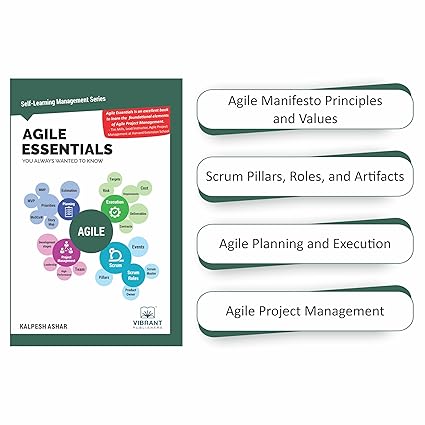Home
-
Blogs on Financial Literacy and Economics
-
The How, Why, and When of Setting Financial Goals

The How, Why, and When of Setting Financial Goals
One of the biggest questions most financial consultants are trained to ask is about your financial goals. Only if they know what you want in your life can they suggest a way for you to reach there, at least in financial terms.
From an individual’s perspective, this question is often confusing. For most people, the goal is to derive the maximum yield from their money while minimizing the risk. They would like to know how they can get to lead the life of a Bill Gates or Jeff Bezos, despite their far more limited resources.
In between lies a vast space of reasonableness. Financial consultants are not magicians. They are financial consultants. At the same time, financial goals are not dreams or flights of fancy. They are financial goals. Hence, they need to be rooted in realism and reasonableness.
Personal Finance Essentials is a compact guide to understanding the subject of “financial planning”.
Personal Finance Essentials You Always Wanted To Know is the newest guidebook by Vibrant Publishers which explains everything about financial planning. This blog will help you set your financial goals so that you can begin your personal finance journey.
The Relevance Of Financial Goals
As sentient, intelligent beings, we owe it to ourselves and our dependents to create the best life we can. It is a matter of strategy or choice. We can’t rely on good luck as is not a strategy or a plan. It might happen sometimes and deliver good outcomes but most of the time it does not.
In fact, our life is full of goals, some stated and many unstated. We want to do well in class. We want to win in sports. We want to look like a movie star. We want to study a certain subject in college. We want to visit the pyramids and take the Alaska cruise. As we mature and grow older, we find that money becomes an integral part of many of these goals. This is why we need to set financial goals too.
How you live is your own responsibility. It is for each individual to determine the desirable trajectory of life for themselves as well as their dependents for as long as they remain dependents. This trajectory is nothing but a set of goals that act as a guiding light for actions and decisions. By no means are they cast in stone. There are many variables that have the power to derail the trajectory. Moreover, money management changes with age too. Read more at <insert blog 1 link>. Hence, financial goals need to be evaluated and reset periodically.
Financial goals can be long-term or short-term. They can be annual or monthly. They can cover retirement, education, travel, savings, debt reduction, net worth, or anything else relevant to an individual. It is all a personal choice.

The SMART framework is a checklist to help individuals set realistic financial goals.
Framework For Setting Effective Goals
As stated earlier, goals are goals, and not dreams and wishes. The more rooted they are in reality, the greater the probability of achievement. Hence, financial goal-setting needs to take into account factors such as earnings, expenses, assets, liabilities, dependents, age, and other financial priorities and factors relevant to one’s life and situation.
Despite understanding their importance, many people struggle with financial goal-setting. There are several frameworks introduced by experts designed to facilitate the process and make it effective. Illustrated here is a framework that has come to be known as SMART, and we will soon see why. The SMART framework is also a popular framework used by organizations in their goal-setting exercises, typically done at least once a year.
|
S |
Specific |
“I will have $10,000 saved in my bank account” is a specific, and hence desirable goal, as compared to “I will save a lot of money in my bank account.” |
|
M |
Measurable |
“Every month for the next 12 months, I will save $500 and put it in a separate account, to pay for the next family vacation,” can be measured while “I will save the $6,000 needed for the next family vacation by reducing my expenses” is not. |
|
A |
Attainable |
This can also be called “realistic.” For a person with an annual income of $100,000, “I will pay off the outstanding mortgage of $250,000 in 5 years” may be a much more attainable goal than “I will pay off the outstanding mortgage of $250,000 in 12 months.” |
|
R |
Relevant |
“My neighbor’s salary should be reduced” might make you feel good temporarily if it does happen, but it has no relevance to your situation. “I will strive for a 10% increase in salary on the basis of a strong performance” would be more relevant. |
|
T |
Time-bound |
“My equity holdings should exceed $50,000” is a specific and measurable goal, but, without the dimension of time-integrated, may not bring much joy. “My equity holdings should exceed $50,000 within the next 2 years” makes it time-bound. |
What Should Your Financial Goals Be?
Though the specifics will vary, we recommend some broad areas around which you should have financial goals. Besides, they are likely to be interconnected. Achieving one will increase your ability to achieve others, and vice versa.
Debt – reduce and eliminate debt
Some debt may need to be taken on, such as a mortgage, as otherwise, it is almost impossible to buy a house early enough in your life.
By and large, for an individual, all debt is bad and needs to be paid off. The earlier the better. The interest you pay on your debt will be higher than what you earn on your credit balances. In the interim, even moving to a lower-cost borrowing might be a desirable goal.
Spending – spend less than what you earn
This is Financial Planning 101. The simplest and most necessary of all financial goals. Once you achieve this, you can live like a king or queen. Knowing that your bank account will not sound the empty sound at you when you dip into it is a liberating feeling.
Income – increase; create multiple streams
This is the second step in financial planning 101. The more you have the more you have to take care of your expenses, positioning you better to save and provide for old age. Of course, easier said than done. You are probably already doing what is possible to earn your potential.
It could be investing your saved money in a manner that creates an opportunity to earn, such as buying a rental property. Or, it could be a side hustle that you are good at and that does not require an investment. You must be on a constant lookout for such opportunities.
To understand your income, expenditure, and finances better, read Components of Financial Statements.
Your financial plan should also include your dependents
You need to ensure they are provided for when you are alive, and when you are not. This means that you need life insurance to step in, in the unfortunate event of you as the primary provider dying early.
The other aspect is to ensure your financial affairs are sorted out to a degree that your successors do not face any issues.
Emergency fund – define and identify
While we need to pack away our savings in investments that provide the best returns, we may need to make a compromise in some cases to ensure that we have a certain amount of money available on call in case we need it.
It is understood that money available on call does not earn the return that money committed for a longer period might. However, there are compensating advantages. Knowing that you have access to a fund that can help you tide over temporary emergencies can be a morale booster and a mental relief provider, enabling better financial outcomes.
In conclusion, financial goals are as important as personal or professional goals that one may set in life. Financial goals can either be short-term, or long-term, but they need to be reasonable and achievable. Eliminating debt, if any, should be a primary financial goal, followed by increasing income and saving to create an emergency fund. One may also have other financial goals depending upon their lifestyle and ambitions. All-in-all setting financial goals and striving to achieve them will propel you towards success and secure you for the future.
This blog is written by Ankur Mithal , author of Personal Finance Essentials You Always Wanted To Know and Organizational Development Essentials You Always Wanted To Know
Share












